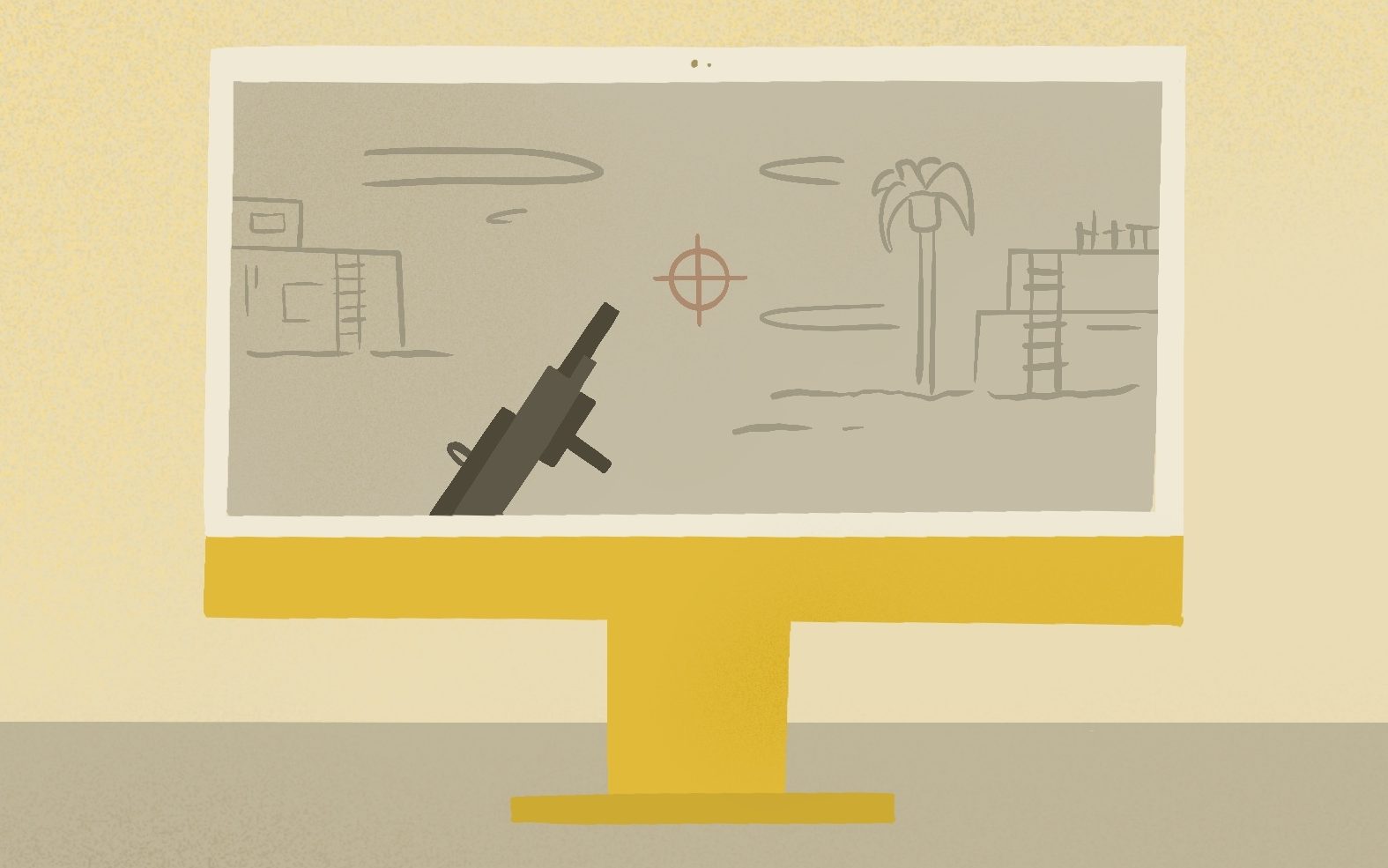Competitive shooter games have taken the world by storm in the past decade. Games like Counter-Strike: Global Offensive, Overwatch and Fortnite have all had a massive influence on internet culture and have been lucrative for their production companies.
Each competitive shooter game has at least a few things in common: they can be played at a high skill level, they have well-refined shooting mechanics, and they greatly reward practice and effort invested by the player. Basing success on a player’s decision-making skills and mechanical ability improves the quality of the competition and game overall; on the other hand, uncontrollable randomness raises the skill floor, and safety nets lower the skill ceiling, making any competitive shooter that includes them worse.
With these standards in mind, we are able to distinguish the good from the bad in competitive shooter games across all subgenres. There are two major categories of these games: ability or team-shooters, where gunplay is supplemented by the use of class-based abilities, and gunplay shooters, where the only method by which a player can influence the match is with their weapons.
Each category has different goals and thus needs to be assessed in the context of those goals. Ability shooters aim to make gameplay more dynamic by offering different roles for the player, which usually consist of tank, support and damage classes. In gunplay shooters, players are indistinguishable from other members of their team, and the emphasis is primarily on gunskill. While both of these types of competitive shooters have a high skill cap, gunplay shooters typically are more methodical and slow-paced.
Counter-Strike: Global Offensive
If there were a spectrum of competitive shooter games from those with an emphasis on pure gunplay to those with a focus on heavy ability, Counter-Strike: Global Offensive finds itself as close to the pure gunplay side as possible. Players are only separated by their skill and what team they are on, making CS: GO one of the earliest competitive franchises to acquire mainstream attention. CS: GO excels in rewarding strategic and coordinated teams and requires players to memorize spray patterns for every gun they want to use. Additionally, many guns can kill in one or two shots, meaning engagements are over almost as soon as they begin. These two factors allow for incredibly intense silences and amazing outplay potential, making CS: GO one of the greatest competitive shooter games to date.
Call of Duty: Modern Warfare
On the same end of the spectrum lies Call of Duty: Modern Warfare. Though it has less to offer in a competitive context in comparison to CS: GO, it’s great for casual play. In CoD: Modern Warfare, the vast majority of the guns are simply not viable for competition because their time to kill, or TTK, is much lower than other weapons. There’s nothing more disappointing than using your favorite weapon only to be gunned down by an MP5 in 200 milliseconds.
Similar things can be said of CS: GO, but at least it has an economic system where less powerful guns are cheaper and can actually be used. CoD: Modern Warfare has nothing of the sort, so a competitive player has only one of three or four guns to choose from. The quality of weapons combined with the breakneck pace at which the game is played makes CoD: Modern Warfare incredibly restrictive for competitive play and leaves little room for creativity and tactical thought.
Tom Clancy’s Rainbow Six Siege
Toward the middle of the spectrum lies Tom Clancy’s Rainbow Six Siege. Although R6: Siege uses guns almost exclusively to get kills, each playable character, or operator, has their own gadget that helps their team in a variety of ways. A few are intended to get kills, but the vast majority are used to gain information from the enemy team or impede their movement. A good team understands the importance of intel and will systematically ensure that the enemy team is completely in the dark until it is too late.
Though R6: Siege is sometimes more comparable to a horror game than a shooter due to the terrifying ambient beeps of technology and distant gunfire as a player’s team is slowly picked off one by one, it has the perfect balance between gunplay and ability focus, and it has an incredibly high skill cap due to its emphasis on tracking position and destructible environment.
Apex Legends
Apex Legends fares worse. It tries to combine the elements of an ability shooter with the characteristics of a battle royale, but their union is problematic. The issue here is that the games simply aren’t consistent enough to make them competitive. In Fortnite, for example, a great player can use their advanced building skills to outplay an opponent even if the guns they found are worse than their opponent’s. There exists no such outplay potential in Apex Legends; while the legends’ abilities have great utility, they are typically unable to compensate for mere bad luck.
To compound this reliance on randomness, there are armor pick-ups that increase a player’s total effective health, which means that an opponent may have more maximum health than you at any given point. This is much different than having only health replenishing pick-ups, as having both present increases the reliance on RNG (random number generation) exponentially. Apex Legends is fun, but it can never be as competitive as a game like R6: Siege.
Overwatch
For competitive shooter games that rely primarily on abilities, the shining example of the genre is Overwatch. It offers a number of different heroes to play, and each is relatively distinct from one another in both aesthetic style and gameplay. The distinctions between each hero are remarkable; tanks have big, hulking figures with abilities focused on crowd-control and resilience, while damage classes are much smaller and offer unique ways of distributing punishment.
These qualities might seem commonplace, but in reality, many games that attempt to emulate what Overwatch has done often fall short, as they are unable to make any single character within a given role noteworthy. Because Overwatch promotes versatility in the way a player can interact with the game, it functions well on a competitive level compared to its contemporaries.
Destiny 2
Destiny 2 does not do this well. In the Crucible, Destiny’s PvP mode, there is technically diversity, but the power differential between the classes is so expansive that any actual diversity is stifled. With the introduction of the stasis subclasses, all balance disappears, and gunplay becomes much less important than abilities. At times, the Crucible hardly feels like a shooter at all. There is nothing more frustrating than being frozen by some stasis wielder from off-screen, just to be killed moments later. It takes away the fun from the game and instead promotes a “you have it or you don’t” economy, where a player either uses what’s in-season or loses. If the scales were tipped back toward an emphasis on gun skill and stasis was toned down, the Crucible would be much more engaging for players.
None of these games are bad games, and all of them can be fun if played casually. However, to play a game competitively puts a great strain on its foundations, as what’s fun must also be of good quality. If a player feels as though they are putting themselves at a strict disadvantage for playing in a way that is personally enjoyable, it not only ruins their fun but destroys their drive to improve.
The best competitive shooter games have a good enough balance that most approaches to playing are viable in high-skill play, and the worst are either too inconsistent to be properly competitive or have a suffocating meta where competitive options are hugely limited. Seeing your skills improve and having it reflected in more success is such a great feeling, and hopefully, game developers learn from previous victories and failures moving forward.

















